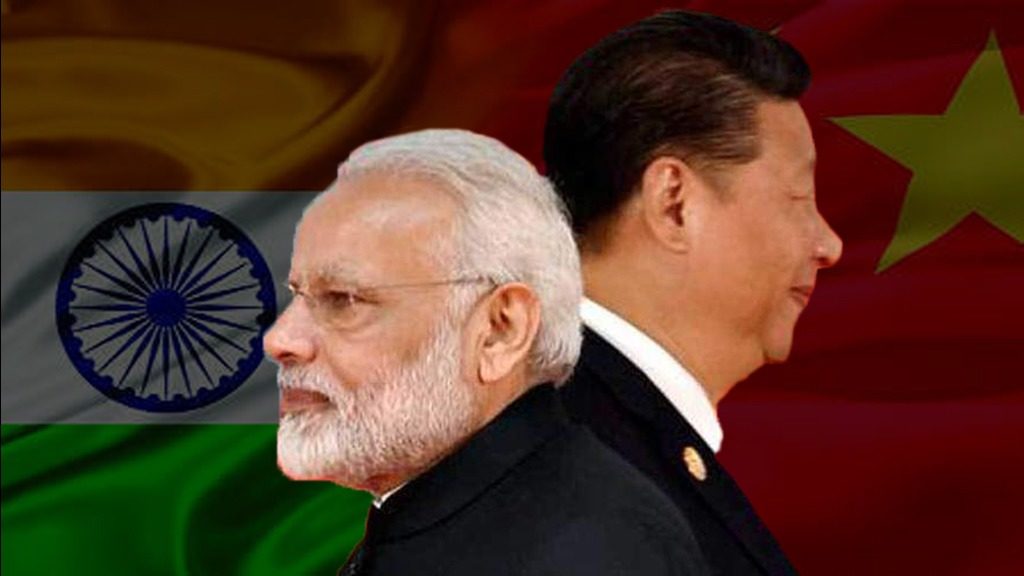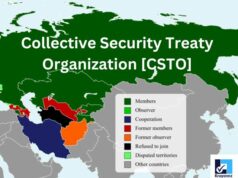Onus of Moving Sino Indian Ties Forward Totally On China

After the Galwan Episode India has categorically stated that now onwards things between the two nations will not be as usual. The onus of rebuilding relationship now rests entirely on China. In case China wants to rebuild mutual trust with India or to whatever extent it is willing to do so, it should take the lead to initiate better China-India relations.
India is ready to reciprocate, as long as China is ready to vacate all Indian territory in Ladakh and physically demarcate the Indo Tibetan Border both on map and ground. India, otherwise should not react on statement of China but instead must keep calm and keep building more frontier infrastructure. Though We should always try to improve the trilateral relationship between Russia, India and China in BRICS and be ready to mediate between China and Tibetan Government in Exile whenever an opportunity arises.
Recently Chinese State Councilor and Foreign Minister Wang Yi spoke with Indian External Affairs Minister Mr Jaishankar on the phone. As usual during the conversation, Chinese Councilor tried to bring in extraneous points, kept vascillating and even moved backward over its policy on India, which has affected and disrupted bilateral pragmatic cooperation and is in the interest of neither side.
Though Wang did say that mutual trust and cooperation between China and India is the right path for both countries. Jaishankar reciprocated by adding that the Indian side hopes to strengthen dialogues and consultations with China, and that India would act in a view of the long-term development and the panorama of relations with China.
Recently, it seems that both China and India have released some positive signals to improve bilateral relations. For example, China and India have achieved a smooth completion of disengagement of frontline troops in the Pangong Lake area.
After the intense standoff, there is likely to be a gradual de-escalation in China-India relations. However, the various statements emanating from Beijing from time to time are certainly not encouraging and we need to stand our guard always.
During the Chinese attempt to make fresh incursions across the LAC in Ladakh, Beijing displayed total arrogance and foolishness combined. However the confidence and strength displayed by the braves of the Bihar Regiment battalion to safeguard territorial sovereignty, unbalanced the PLA completely. Beijing soon realized that the confrontation with Indian on the LAC area put China in a very dangerous situation. Instead of adding some real estate thru salami slicing tactics, the Chinese Military Commission realized that ultimately this confrontation may lead to PLA vacating not only Chinese Occupied Ladakh but even Chinese Occupied Tibet. Thus, disengagement could be seen as China taking advantage of this chance to extricate itself from this tense situation.
At present, there are too many uncertainties between India and China that could affect bilateral relations. To begin with, whether restraint can be exercised along the LAC to avoid a repeat of last year’s violent clash. If it happens again, China-India relations will have reached its nadir.
India will continue to maintain a strong defensive posture and will now also start building some offensive capabilities to help liberate Tibet, when required. There will be no apology given to anyone on this account. India’s foreign policy has undergone some substantial changes in the past years. The country has decided to stand up and occupy its rightful place in the World Order. India will maintain friendship with every country but will not permit any power eastern, western or central to contain and interfere with India’s development. These actions have already helped In a considerable way to stabilize China-India relations.
China-India relations have to be very clear. The Chinese Communist Party will have to desist from playing games and instead must work with India to properly manage differences, promote practical cooperation, and get the bilateral relations back on the right track. Any smart or lose remarks over Jammu & Kashmir,Ladakh,Tibet, Dalai Lama and Arunachal Pradesh will result in similar comments and actions on Quighers, Xinjiang and Hong Kong. India will also keep improving its bilateral relationship with Taiwan
Whereas, earlier there was “fear” in the political leadership of India, that mentality has evaporated since 2014. Now Indian strategists constantly urge the country to achieve its own National Interests. The strategic community in New Delhi, in general, now knows that Beijing cannot be trusted on its mere words.So India will continue to talk softly but will have to start building a “ big stick” too. On Wednesday, Indian Chief of Army Staff MM Naravane has correctly described China as having been in the habit of creeping forward, making small incremental changes. Such “ creeping” will now be retaliated severely.
Since the 2017 Doklam standoff when China had tried to grab some Bhutanese territory, strategic mutual trust has been severely damaged. It is hard to re-establish high-quality mutual trust With China. China and India are neighbouring countries, and history tells that there has been peace for most of 7000 years between the two giants.So currently set on a wrong course, it requires Beijing to profoundly change its strategy towards New Delhi before high-quality mutual trust can be regained.
From this perspective, there are two pragmatic first steps. China should stop sabre rattling and stop all military build up in Occupied Ladakh. Second it should start paying rent for using Indian territory in Gilgit Baltistan for its CPEC project.



